Award-winning journalist and presenter Louise Hulland on her career, lockdown life, and on missing Lancashire 'like mad'
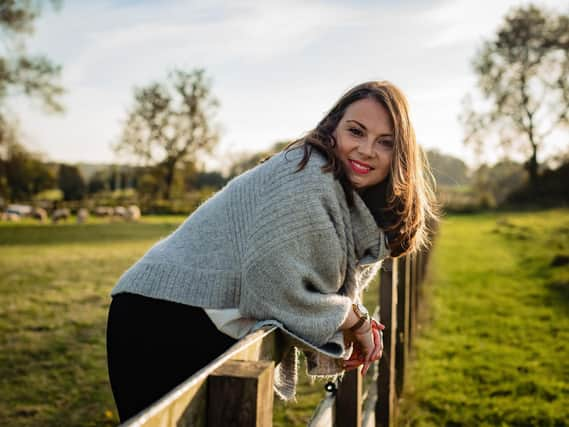

Raised in the bucolic village of Read nestled between Clitheroe and Burnley, the award-winning journalist, TV and radio presenter, documentary-maker, and author has spent lockdown in her home in rural Cambridgeshire from where she presents her twice-weekly BBC radio show. Almost as soon as our interview begins, she asks ‘how’s everything back home?’
“I genuinely, hand-on-heart, reckon I’m one of the luckiest people ever, because all the things which are so important to get you off to a good start in life, I had,” says Louise, 41, of her childhood. “It was just idyllic and I’m very proud of my roots. You don’t realise how lucky you are to live in such a lovely part of the world when you’re growing up but, when I come home, I get butterflies. It’s like I’ve never been away.”
Advertisement
Hide AdAdvertisement
Hide AdFrom an early age, Louise fell in love with journalism. As an eight-year-old, she set up a newspaper at Read St John’s Primary School and vividly remembers being shown wide-eyed around the Burnley Express offices. Whilst at Clitheroe Grammar School, she did work experience at the Clitheroe Advertiser and can still remember the smell of the newsroom.
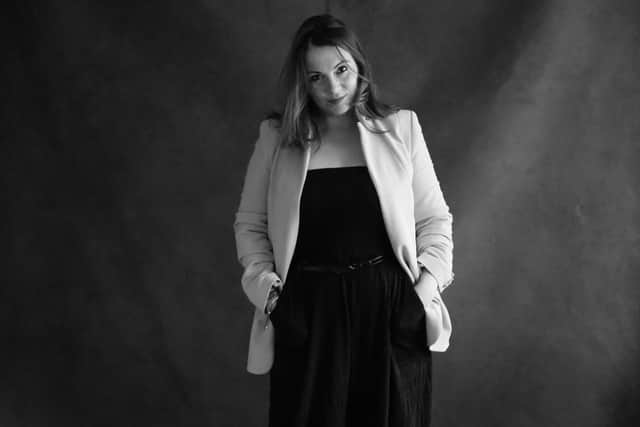

“It’s so nostalgic,” she says. “It takes me right back to being 16.”
Louise’s other love growing up was performing. She took classes at Burnley Dance School and went to Burnley Youth Theatre, but there was one problem. “I just wasn’t very good!” she says with a laugh. “I always wanted to be a journalist and I loved performing, so in the end I combined that passion for telling people’s stories with that side of me which was happy being on camera.
“You look back at your life and things sort of make sense retrospectively,” adds Louise, whose parents were both teachers. “My parents both have a really strong work ethic and moral compass, and I think that really drove me subconsciously as a kid.
Advertisement
Hide AdAdvertisement
Hide Ad“It’s only now when I look back that I realise how much I absorbed by being around people who are passionate about education, which is also what journalism is in a way - being a conduit for information.”
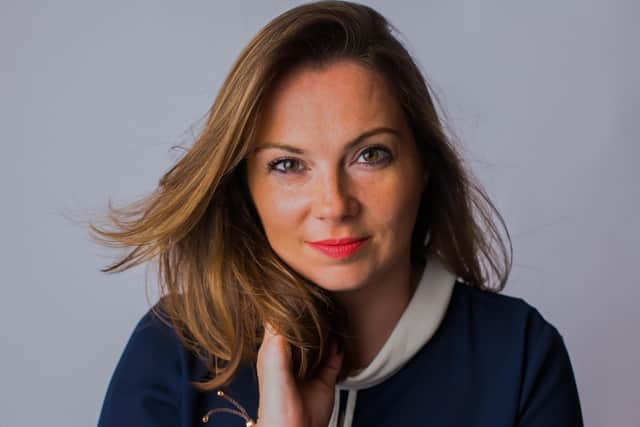

At Durham University, Louise split her time between studying for a degree in theology with shifts on the uni paper, the Palatinate, and further work experience at the Newcastle Chronicle. She also got her first taste of local radio and, after graduating, moved back to the North West to work for BBC Radio Lancashire for a year.
“I loved it,” says Louise. “It was like a light going on inside me and I knew I wanted to do radio. It was magical and visceral: two people in the studio talking to an entire county with every listener taking something different from it. It was extremely powerful.”
The love of radio then drew Louise to London, where she worked as a freelancer on some of the UK’s biggest shows, including The Chris Moyles Show, The Surgery, and Newsbeat, whilst also working with Steve Wright on Radio 2, with Terry Wogan on Children in Need, and as a showbiz reporter.
Advertisement
Hide AdAdvertisement
Hide AdBuilding a reputation as a born storyteller and a relentless worker, she started pitching ideas for TV and found a few footholds.
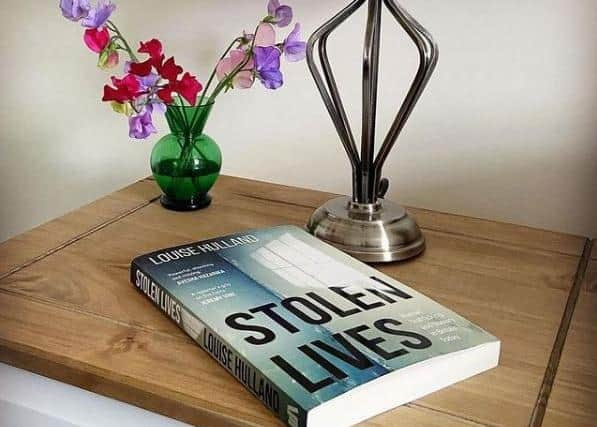

“My first piece was for Inside Out London on female bouncers, which was really fun,” says Louise, who went on to work on shows such as The One Show, Watchdog, ITV London News, ITN, and Mysteries at the Museum on the Travel Channel USA, earning rave reviews for her musical Lancastrian lilt from American viewers.
“No one really hands you anything on a plate, you’ve got to have a good idea and even then it may not necessarily be what people want,” she adds. “But if you show up, do a good job, and are nice to work with, people will think of you for jobs.
“I love the variation across TV, radio, and written journalism,” she explains. “Radio’s more intimate - I focus on one listener and think of it as me and them - whereas TV is a much bigger operation and it’s not as immediate. On TV, you’re more aware of yourself whereas on radio you don’t think about yourself as much, you’re just chatting. But you do have to paint the picture with your words, which can be quite difficult at 6am!
Advertisement
Hide AdAdvertisement
Hide Ad“It’s easy to think about the rejections, the jobs you didn’t get, and the time spent chasing invoices whilst your friends have more secure job structures and think ‘oh god, have I made a massive mistake?’” Louise says of her time as a freelancer. “But then you look through old photos which make up the patchwork of your career and you think ‘what a privilege it’s been’.”
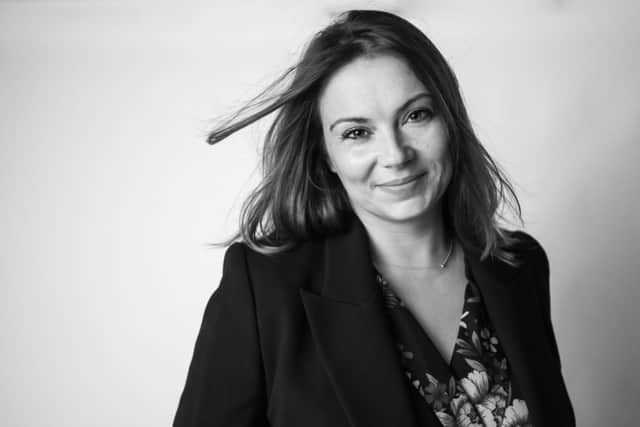

Her career blossoming, Louise was soon making appearances on BBC Radio 4’s Woman’s Hour, working on the BBC’s World Service, doing paper reviews on BBC Radio London, and working on BBC 6 Music News and BBC Radio 2’s Art Show with Claudia Winkleman.
But it was a meeting in 2017 which had the biggest impact of all.
“About 10 years ago, I went for a coffee with an old university lecturer and he mentioned a human trafficking project and I just thought ‘in the UK? Surely not,’” says Louise. “I started exploring the issue and, in 2017, I met somebody who had been trafficked, which changed everything.
Advertisement
Hide AdAdvertisement
Hide Ad“It’s one thing knowing this is a crime that affects 40 million people around the world, but when you’re sat with a person to whom this has happened and looking into their eyes, that brings it home very tangibly.”
That person was Elena, an Albanian student with a harrowing story who was trafficked to the UK via Belgium.
“I wanted to tell Elena’s story and she wanted to tell her story, but I didn’t want to put her in a position which could have been in any way exploitative,” says Louise of her decision to recount Elena’s journey in her book Stolen Lives , which was published by Sandstone Press last year.
“The spine [of the book] is Elena’s story, which kind of wrote itself; I could hardly believe she had the bravery to sit and talk to me about everything,” she adds, with around 136,000 people currently in some form of slavery in the UK. “It was emotional because I knew what had happened to her and she’d become a friend, so writing up in grim detail what happened to her still makes me upset even now.
Advertisement
Hide AdAdvertisement
Hide Ad“You get into journalism because you want to make a difference, then you realise there’s so much darkness in the world and you think ‘whatever I do is a drop in the ocean’. But, at the end of the book, I include a quote about how all we can do is create a ripple and then all the ripples combine to create change.”
In lockdown, Louise says that hosting her radio show for BBC Radio Cambridgeshire has been a welcome point of focus in what has been a tumultuous year to say the least.
“I’m one of the lucky ones, so I can’t complain, but I do miss my family desperately,” she says, with her parents still living in the Ribble Valley. “Doing the show has been great; as much as you’re there for an audience, they’re there for you as well. Radio brings people together over the airwaves and that’s never been more important.”
And Louise has even cultivated a new hobby during lockdown.
“It may sound a bit weird, but I’ve reconnected with going on the swings,” says Louise with a laugh. “Near me, there’s a tyre with meshing underneath and you can lie back in it. Just five minutes staring up into the sky and taking deep breaths is so calming and meditative.
“You realise your life and this moment in time is just a tiny blot in the universe which will pass,” she adds. “Everybody’s having a tough time, but we’ll get through it together.”